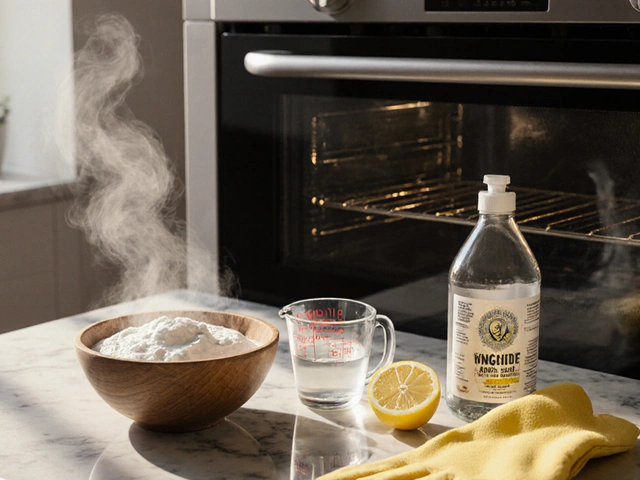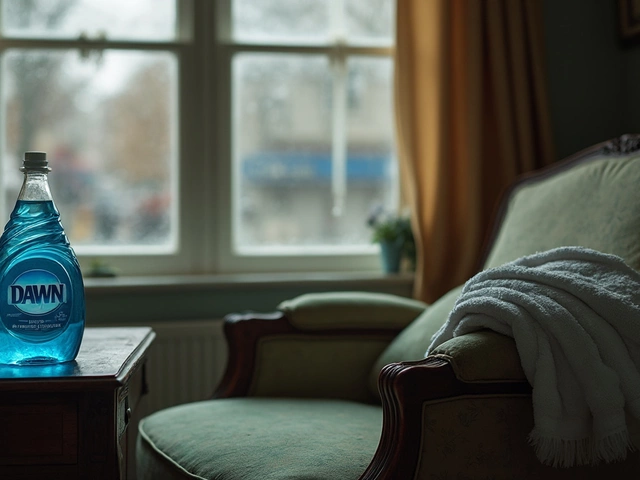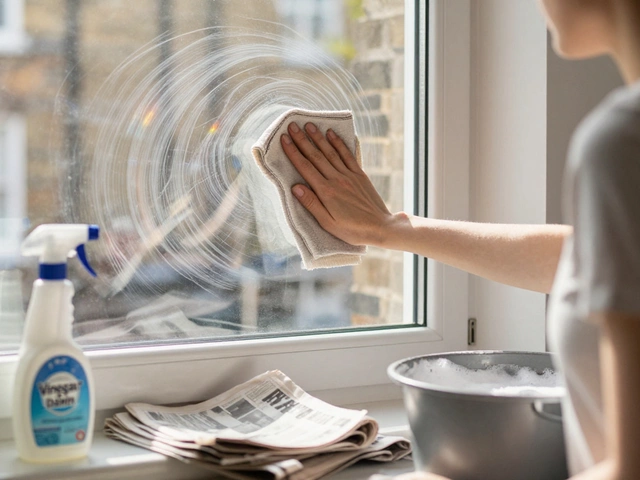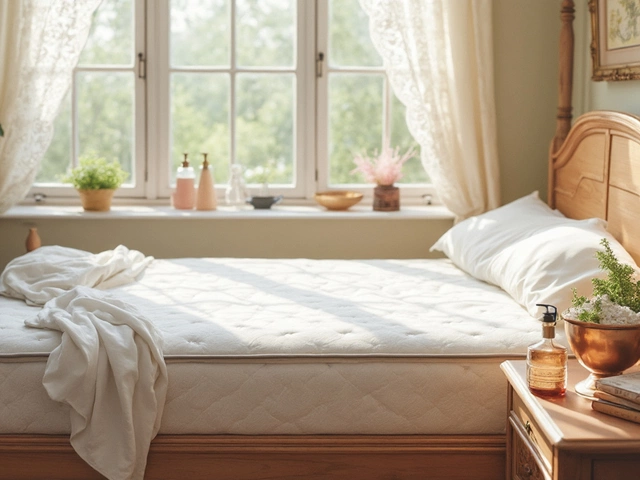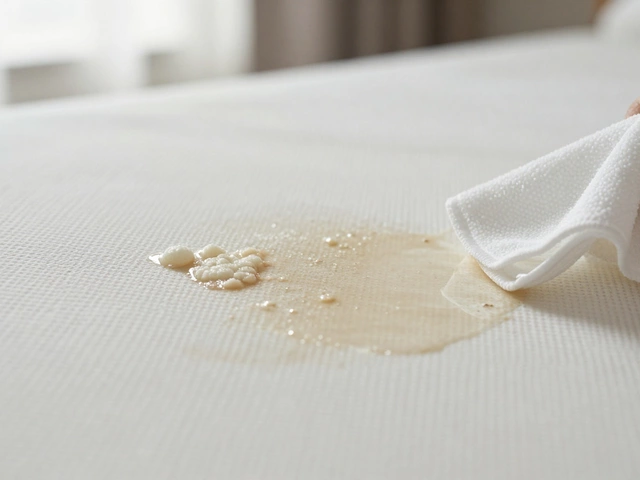Cleaning our homes is something we all have to do, but have you ever thought about what you're actually using to scrub the grime away? Turns out, some of those everyday cleaners are not as harmless as they seem. Many contain chemicals that can be harsh on both the planet and your health. Thankfully, going green with your cleaning routine is easier—and cheaper—than you think.
So, what's the best thing to wash your house with if you're going for an eco-friendly approach? Vinegar, baking soda, and lemon juice top the list. These natural ingredients aren't just good for your salad! They're versatile enough to tackle bathroom grime, kitchen stains, and pretty much anything else you can throw at them. Plus, they're safe and don't leave a toxic residue. It's like having a cleaning Swiss Army knife, minus the price tag.
Stay tuned to learn how you can effortlessly integrate these staples into your cleaning routine, creating homemade solutions that pack a punch without packing your home with chemicals. Whether it's shining up your mirrors or freshening your carpets, we've got you covered with practical tips anyone can follow. And who knows, you might even enjoy cleaning—just a little!
- Understanding Eco-Friendly Cleaning
- Natural Cleaners for Every Surface
- DIY Cleaning Recipes
- Tips for a Greener Clean
- Benefits of Eco-Friendly Cleaning
- Switching to Sustainable Products
Understanding Eco-Friendly Cleaning
Diving into the world of eco-friendly cleaning isn't just a trend—it's a smart choice for your home and the planet. But what does it mean, really? At its core, it's about using methods and products that are kind to the earth and less harmful to our bodies. It's all about reducing the chemical footprint in our lives, one spritz at a time.
Why Go Green?
A lot of conventional cleaning products are filled with chemicals that can linger long after you've put the bottle away. These chemicals can affect indoor air quality and even contribute to health issues over time. Ever wondered why you get a headache after a cleaning session? It might be those harsh chemicals you're breathing in.
Going green with cleaning focuses on using natural ingredients. Substances like vinegar, baking soda, and essential oils are not just for cooking or aromatherapy—they're effective cleaning agents! Natural cleaners are biodegradable and generally safe for both kids and pets. So, if you have little ones crawling around, this approach gives you peace of mind.
Eco-Friendly Cleaning Staples
- Vinegar: Known for its antibacterial properties, it's great for glass surfaces and countertops.
- Baking Soda: A powerful deodorizer; sprinkle some in your laundry or scrub your tub.
- Lemon Juice: Naturally antiseptic, great for freshening up and adding a lovely scent.
- Essential Oils: Not just for smelling nice—some have disinfectant properties too, like tea tree oil.
Are Eco-Friendly Products as Effective?
You might wonder if these greener options pack the same punch as their chemical counterparts. The short answer is yes! With a bit of elbow grease and the right combinations, you can tackle most household cleaning tasks efficiently. Plus, there are plenty of commercial brands now offering natural cleaners that are safe and eco-conscious.
The Bigger Picture
Statistics show increasing numbers of consumers are moving towards sustainable products. In fact, according to a 2023 survey, 75% of households reported they’ve used at least one eco-friendly cleaning product in the past year, acknowledging their growing trust and effectiveness. This shift not only impacts our immediate environment but helps reduce overall pollution when these products enter water systems.
Switching to eco-friendly cleaning is more than just a personal health choice; it’s a small but mighty contribution towards a cleaner, safer environment. It's about making better decisions today for a healthier tomorrow. Ready to swap out that bottle of harsh chemicals? Your house—and the planet—will thank you for it.
Natural Cleaners for Every Surface
When it comes to keeping your home neat without the harsh chemicals, eco-friendly cleaning can be your best friend. Let's break down which natural ingredients work best on different surfaces around the house.
Kitchen Magic
Your kitchen sees a lot of action and should be cleaned regularly to keep germs at bay. Use vinegar mixed with water as a multi-purpose spray for countertops and appliances. Vinegar’s acidic nature helps cut through grease and grime.
- For greasy stovetops, sprinkle baking soda, spray vinegar, and then scrub with a damp cloth.
- To tackle the inside of your microwave, microwave a bowl of water with lemon slices for ten minutes. Wipe it clean with a cloth for a fresh scent.
Bathroom Shine
Want to keep your bathroom sparkling without hazardous fumes? Baking soda and vinegar can work wonders here too.
- Mix a cup of baking soda with a few drops of essential oil and sprinkle it into the toilet bowl, then scrub. Rinse with vinegar for a fizzing clean.
- Spray lemon juice on tough soap scum in tubs and showers, let it sit for a few minutes, and rinse with warm water.
Living Room Freshness
For the living room, think about the surfaces you touch often. They should be both clean and safe.
- Dust wooden furniture with a cloth soaked in a mixture of olive oil and lemon juice to nourish the wood while cleaning.
- To eliminate carpet odors, sprinkle a mixture of baking soda and your favorite dried herbs. Vacuum after letting it sit for a while.
Overall House Glimmer
For windows and mirrors, and most surfaces, a simple solution of equal parts water and white vinegar will leave them streak-free.
Eco-friendly cleaners not only cut back on toxic exposure but are also kind to your wallet and the planet. As a bonus, you might even find cleaning with lemons and baking soda is surprisingly satisfying!
DIY Cleaning Recipes
If you've ever thought about whipping up your own cleaners, it's way easier than baking a cake—and you won't be contributing to indoor pollution either. With just a few household ingredients, you can make eco-friendly cleaning solutions that get the job done.
All-Purpose Cleaner
Let's start with an all-purpose cleaner that works wonders on countertops and other surfaces. Mix:
- 1 part water
- 1 part vinegar
- A few drops of essential oil (like lavender or tea tree) for scent
Combine in a spray bottle and shake well. Spray it on surfaces and wipe clean with a cloth. The vinegar cuts through grime, while the essential oil leaves a fresh scent.
Natural Glass Cleaner
Tired of those streaks on your mirrors and windows? Mix up this fast fix using:
- 1 part water
- 1 part vinegar
- 1 tablespoon corn starch
Shake it up in a spray bottle. Spray on your glass surfaces and wipe with a microfiber cloth for a streak-free shine. The corn starch helps prevent those dreaded streaks!
Heavy-Duty Bathroom Cleaner
For those stubborn bathroom stains, you need a little extra muscle. Mix:
- 1/2 cup baking soda
- 1/4 cup hydrogen peroxide
- 1 teaspoon dish soap
Apply the paste to stained areas, let it sit for at least ten minutes, then scrub away. You'll be amazed at how well it lifts soap scum and grout grime.
These natural cleaners aren't just good for your home; they're great for the environment too. By using these simple DIY recipes, you reduce plastic waste and avoid nasty chemicals without sacrificing cleanliness. Why not give them a try next time you're ready to tidy up?
| Ingredient | Purpose |
|---|---|
| Vinegar | Breaks down grease, kills some bacteria |
| Baking Soda | Scrubs and deodorizes |
| Essential Oils | Adds pleasant scent, may have antibacterial properties |
| Hydrogen Peroxide | Disinfects and brightens |
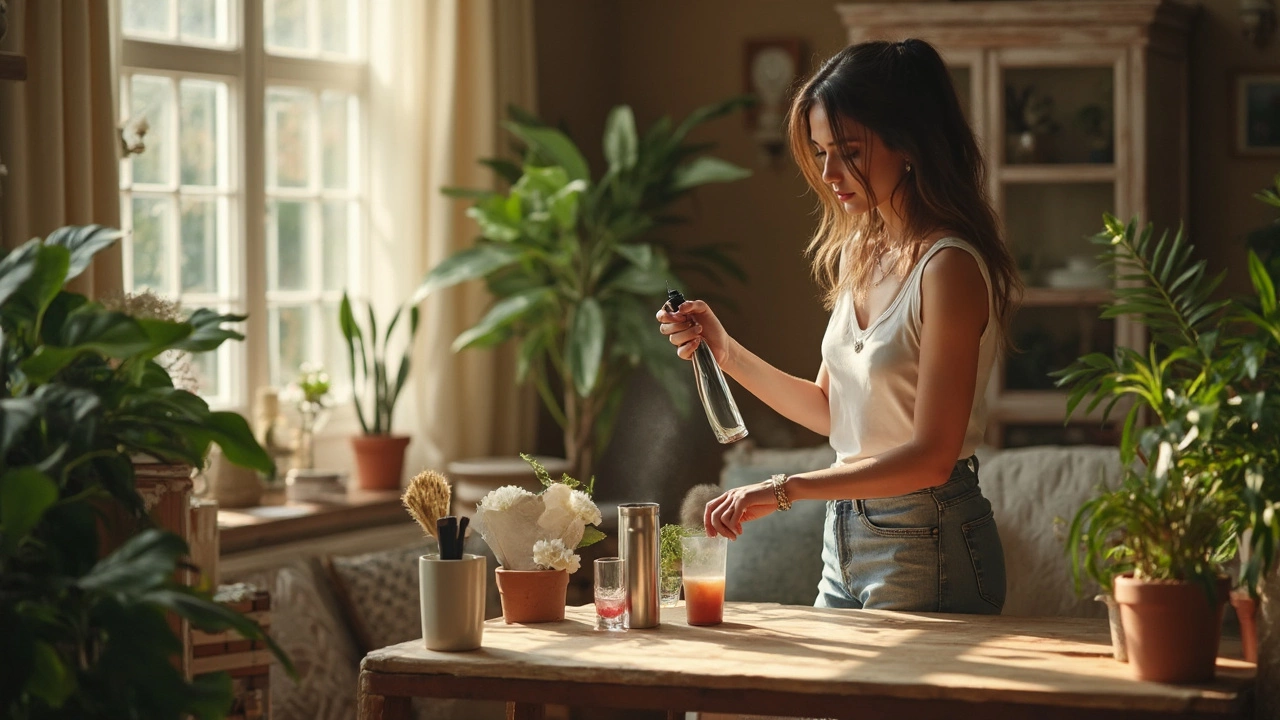
Tips for a Greener Clean
Want to make your cleaning routine more eco-friendly? Here are some easy-to-follow tips that can help you embrace green cleaning without breaking the bank.
1. Use Natural Ingredients
You probably have the basics in your kitchen already—vinegar, baking soda, and lemon juice. These are not only great at cutting through grease and grime but they're also kind to the environment. Mix vinegar and water in a spray bottle for a simple all-purpose cleaner that’s perfect for countertops and windows.
2. Ditch Disposable Wipes
Say goodbye to single-use wipes that end up in landfills and hello to reusable cloths. Cut up old t-shirts or towels, and you’ve got yourself some zero-cost cleaning rags. After use, just toss them in the laundry, and they’re good to go.
3. Make Your Own Air Fresheners
Skip those store-bought air fresheners full of chemicals. Instead, simmer some cinnamon sticks, orange peels, or cloves in water to naturally scent your home. Alternatively, drop a few essential oils onto a piece of cloth and tuck it in your drawers.
4. Buy in Bulk
Opt for bulk-sized cleaning ingredients to cut down on packaging waste. It's often cheaper and reduces the number of times you have to pop out for more supplies. If you want to get serious, consider a zero-waste store where you can refill your bottles directly.
5. Embrace Baking Soda
Besides cleaning, baking soda can remove odors. Sprinkle some in the bottom of trash bins, or let a box live in your fridge. It’s an all-around odor eliminator!
6. Be Smart With Water
Cleaning consumes water, so use it wisely. Turn off the tap while scrubbing, and mop only when really needed. If you mop with a purpose, you can make that bucket of water go a long way.
Useful Stats
| Product | Annual Spend (USD) |
|---|---|
| Household Cleaners | $500 per household |
| Eco-Friendly Cleaners | $300 per household |
As you can see, switching to eco-friendly cleaning options not only benefits the planet but can also save you some cash. Anyone can do it with just a few small changes, ensuring your home stays clean and sustainable.Natural cleaners are effective and easy to incorporate into your daily life!
Benefits of Eco-Friendly Cleaning
Switching to eco-friendly cleaning isn't just a trend—it's packed with real, tangible benefits. Ever thought about how what you use in your home affects the broader world? Let's dive into some compelling reasons more people are going green with their cleaning routines.
Healthier for You and Your Family
Many typical household cleaners are loaded with harsh chemicals. They can cause skin irritation, respiratory issues, and other health problems, especially for kids and pets. Going green means opting for natural cleaners that skip the harmful stuff. Just think, a splash of vinegar or a sprinkle of baking soda won't irritate your skin like some chemical cleaners might.
Better for the Environment
When you wash away those chemical cleaners, they don't just disappear—they end up in our waterways, impacting aquatic life and ecosystems. By using eco-friendly cleaning products, you reduce this pollution. Natural cleaners break down more easily and don't leave a toxic footprint. That's a win for the earth!
Cost-Effective Cleaning
Who said going green had to break the bank? Ingredients like vinegar and baking soda are inexpensive and often already in your pantry. You can whip up an effective cleaner with a fraction of the cost you're used to spending on commercial products.
Simple and Versatile
Eco-friendly cleaners are often multi-purpose. A mix of vinegar and water can clean windows, counters, and even tackle mold. It's all about doing more with less.
The Feel-Good Factor
Knowing you're making a positive choice feels pretty great. Choosing greener options helps you live more sustainably and leave a smaller footprint on the planet.
| Traditional Cleaners | Eco-Friendly Alternatives |
|---|---|
| Harsh chemicals | Natural ingredients like vinegar and lemon juice |
| Costly | Budget-friendly |
| Polluting | Biodegradable |
If you're on the fence about making the switch, remember every little bit helps. Gradually swapping out your current products for greener options can make a big impact over time. So, why not start today?
Switching to Sustainable Products
Changing up your cleaning arsenal doesn't have to be overwhelming. In fact, with so many sustainable products now on the market, it’s easier than ever to make the swap. But where do you start?
Understand Your Labels
First, become a label detective. Look out for products labeled “eco-friendly,” “biodegradable,” or “non-toxic.” Be wary, though—greenwashing (that’s when a product is falsely marketed as environmentally friendly) is a thing. Certification from trusted organizations like the Environmental Working Group (EWG) can guide you toward genuinely green cleaners.
Ingredients Matter
Avoid ingredients like phthalates, sulfates, and triclosan - these can be harmful. Instead, seek out natural cleaners made with simpler ingredients like plant-based surfactants, which cut through grease just as well but without harsh side effects.
Reusable Over Disposable
Besides what’s in the bottle, think about what's getting tossed. Swap paper towels for reusable cloths. They’re like a best friend to your wallet and the planet. Plus, microfiber cloths work wonders—pick up dirt and bacteria without needing sprays.
Purchase Concentrates
Consider buying cleaning concentrates. They’re super effective yet use minimal packaging. Just add water at home, which means less plastic waste and a smaller carbon footprint. Drawer clutter and storage issues solved!
Stats That Count
Wondering if it makes a difference? According to a 2023 survey, households using eco-friendly cleaners have seen a 30% reduction in indoor air pollutants compared to those using conventional products. It’s a win-win for your health and well-being.
| Sustainable Swap | Conventional Product | Environmental Impact |
|---|---|---|
| Reusable cloths | Paper towels | Reduces landfill waste |
| Concentrated cleaners | Single-use bottles | Less plastic production |
Making these swaps might seem small, but remember, every little bit adds up. By switching to sustainable products, you're not just cleaning your home—you're contributing to a cleaner, healthier planet.
